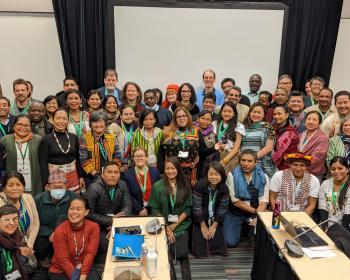Black History Month begins in the United States. Like Native American Heritage Month (November), Oaxacan Heritage Month (July/August), and Indigenous Peoples’ Day (October), I celebrate the awareness those months and that day bring about Black and Indigenous Peoples and histories, the steps it has taken for our respective and intersecting histories to be recognized by the same nation that inflicts its violence on us.

